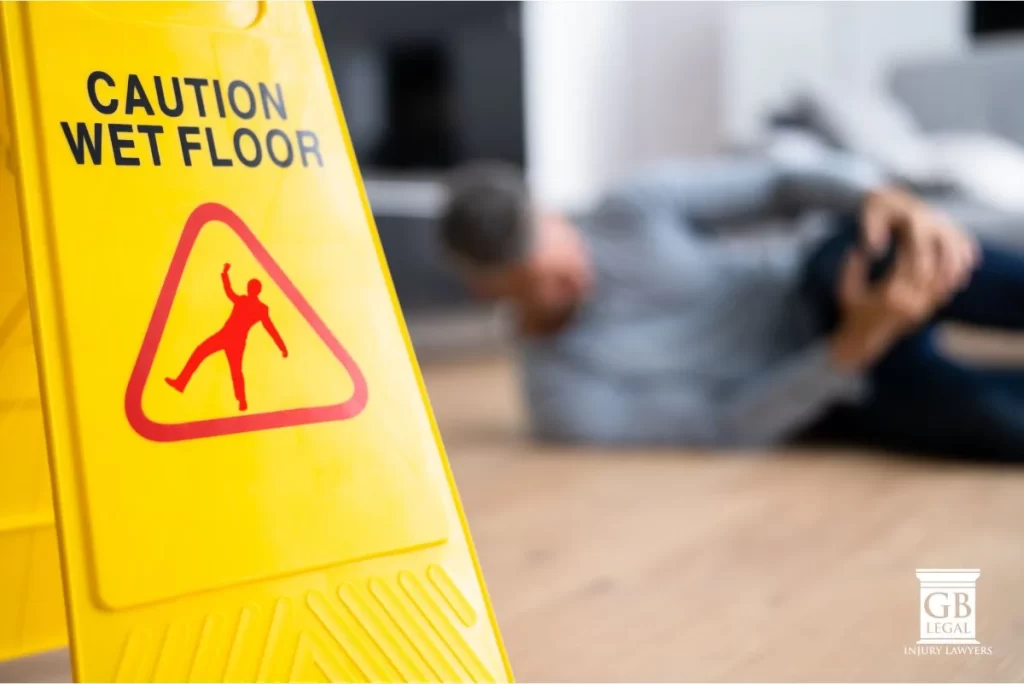If you have questions like “What are the common injuries from slip-and-fall accidents?” or “How do I know if I have a strong case?” after a recent injury, an experienced Sacramento slip-and-fall attorney can help.
What Is a Slip and Fall Accident?
A “slip-and-fall,” also sometimes referred to as a “trip-and-fall,” is a type of personal injury accident related to premises liability law. A slip and fall occurs when you injure yourself on someone else’s property because there was insufficient warning of a hazard or the premises were not maintained for the safety of visitors – both of which imply negligence on the property owner’s part.
A slip and fall incident can happen almost anywhere since premises liability applies to all property owners. This includes private property you were invited to (recreationally or professionally), public pools, gyms, stores and malls, restaurants, parking lots, office buildings, public parks, and more.
The factor on the unsafe premises that led to you falling and sustaining bodily harm can vary. Sometimes, the hazard is as simple as an uncleaned spill or water leak with no caution sign accompanying it; even a handwritten sign or verbal warning is often deemed adequate.
Other examples include faulty or improperly maintained stairs, debris or other obstacles along a walking path that is not fenced off or was purposely hidden, unsecured objects that fell from above and hit you, or dim lighting conditions, among numerous other scenarios.
Common Injuries a Slip-and-Fall Can Cause
There’s a wide range of injuries you may endure after a slip-and-fall, depending on the details of your fall. Influencing factors include what caused you to lose your footing (e.g., a loose tile, slippery floor mat or surface, broken stair step, faulty elevator, no caution signs, debris on the walking path, etc.), the body part you landed on, how hard the impact was, what you landed on, and whether you landed on your head, among other potential elements.
Potential injuries that are commonly observed after this type of accident include broken or shattered bones (hip, arm, wrist, ankle), sprains or strains, knee injuries, damage to the neck or spinal cord like slipped discs, dislocated shoulders, scrapes and lacerations, injury to the face or teeth, soft tissue injuries, nerve damage, concussions, and traumatic brain injuries.
Some injuries can be worsened by the individual’s general health conditions or lifestyle choices. For example, certain medications can affect your ability to stay balanced and can lead to more severe physical harm, such as sedatives, antidepressants, tranquilizers, and blood thinners.
How Does a Personal Injury Lawyer Help My Case?
It is possible to seek compensation after your accident by filing an injury claim by yourself, but there are potential risks in taking legal action without legal counsel. For example, you are more likely to be taken advantage of or not taken seriously when interacting with insurance companies.
Insurance providers are notorious for trying to save on costs and may try to avoid paying you compensation in general or offer you a settlement payout that is much less than you’re entitled to. An injury attorney will know the minimum amount you should receive for compensation and understand how to negotiate with insurance companies, ensuring that you don’t accidentally accept a settlement proposal that’s inadequate or get turned away by the insurer.
Furthermore, a qualified attorney is prepared to take your case to court if the insurance provider is uncooperative and litigation becomes necessary. Your lawyer will investigate the details surrounding your accident and develop a strong case for your claim for compensation. Capable injury attorneys know what evidence is most relevant and compelling to the court.
FAQs
Q: What Is the Most Common Injury After a Fall?
A: The most common injuries after a fall accident typically include sprained joints or ligaments, strained muscles and tendons, bruises, scrapes, lacerations, concussions or other brain injuries, broken wrists, ankles, and hip bones. Some injuries are noticeable right away, while other bodily harm may become apparent days after the incident. If your symptoms worsen or persist, it’s advised to seek medical attention right away.
Q: What Is the Worst Injury You Can Get After a Fall?
A: The worst injury someone may endure after falling largely depends on the individual and the conditions of their incident, including on what or where they fell. Among the worst are traumatic brain injuries (TBIs) and severe spinal cord damage.
TBIs have the potential to cause long-term or permanent cognitive issues and affect the person’s senses or ability to function. Similarly, spinal injuries can lead to difficulty walking, long-term pain, limited range of motion, and potentially even partial or full paralysis.
Q: What Are Delayed Symptoms After a Fall?
A: Delayed symptoms after an injurious fall incident are injuries that begin to become apparent several hours or days after the accident, often developing or worsening with time. This common phenomenon likely happens because of the body’s reaction following an unexpected injury, the effects of shock and adrenaline masking the sensation of physical harm.
Therefore, it’s often wise to seek medical treatment soon after a fall in case your injuries are not yet apparent or visible to you.
Q: Who Is Most Likely to Fall and Sustain Serious Injury?
A: Elderly individuals and those whose health is compromised are more likely to fall and sustain serious injury. Frail or weakened people, including the elderly, tend to be more prone to sprains, broken bones, bruising, cuts, and scrapes.
Additionally, anyone with diminished hearing or vision is more susceptible to hazards because they’re less aware of their surroundings. Someone who has balance issues or is on medications that affect balance or thin their blood is also likely to lose their footing and be easily hurt.
Speak With an Experienced Injury Attorney to Recover Damages
At Guenard & Bozarth, LLP, you can feel confident that your personal injury case is in capable hands. After suffering pain and expenses due to someone else’s negligence, ensure your legal representation is qualified to earn you the fair, maximum compensation payout you’re entitled to. Reach out to begin your case today.


